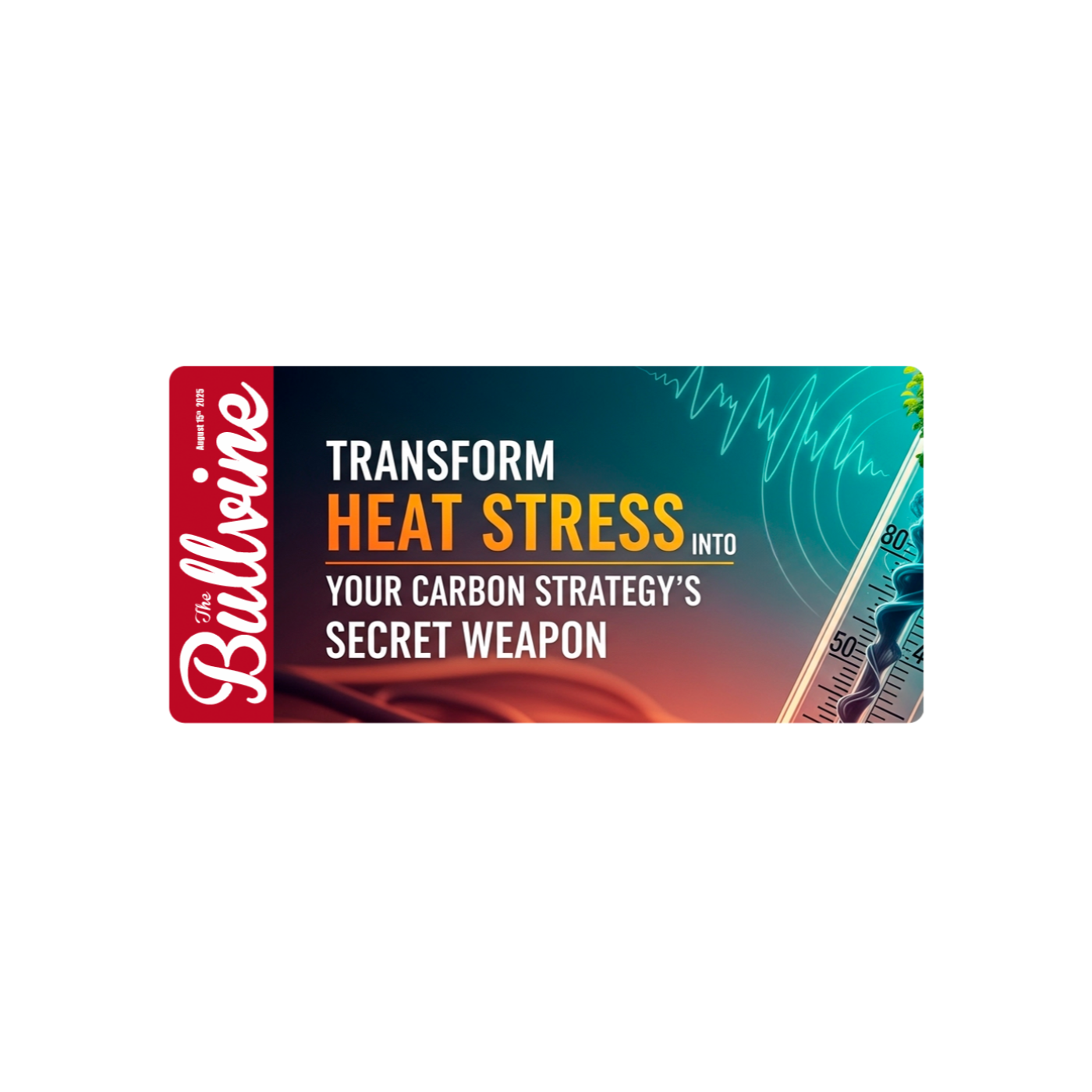Episode Details
Back to Episodes
E343 Transform Heat Stress into Your Carbon Strategy’s Secret Weapon
Description
Heat stress in dairy cattle isn't just cutting your milk yield—it's driving up methane emissions and threatening your farm's profitability and sustainability. This episode exposes the double financial and environmental blow of rising temperatures on your operation and offers scientifically-backed, practical strategies to protect your herd, optimize genetics, and turn climate challenges into competitive advantage.
Key Takeaways:
- Discover how heat stress increases methane emissions by up to 23% per gallon of milk and slashes production—what that means for your bottom line
- Learn why the outdated 80°F threshold for heat stress management is costing your operation thousands and how monitoring THI at 68 provides a crucial early warning system
- Understand how genetic selection for heat tolerance, including the SLICK haplotype, can safeguard your herd's productivity in a warming world
- Explore cost-effective cooling technologies and precision monitoring solutions delivering 3:1 ROI while reducing carbon footprint
- Gain insights into why smaller farms suffer disproportionately and how to leverage federal cost-share programs to stay competitive
Deeper Dive - Why Listen: This episode takes a deep dive into cutting-edge research from peer-reviewed journals and USDA reports, unraveling the complex physiological, economic, and environmental impacts of heat stress on dairy cattle. We discuss the metabolic cascade triggered by thermal stress, its disruption of rumen fermentation leading to increased methane intensity, and the economic toll extending beyond the milk check to long-term genetic resilience. We critically challenge the conventional wisdom that heat stress damage can be managed solely through reactive cooling and call for proactive strategies integrating precision ventilation, nutritional adjustments, and genomic selection. Learn why implementing real-time THI monitoring at the lower threshold of 68 is vital to prevent expensive productivity and compliance losses. We provide actionable guidance on optimizing cooling systems, feeding strategies, and breeding programs designed for the climate realities of 2030 and beyond.
Resources & Engagement: Subscribe to The Bullvine Podcast and visit https://www.thebullvine.com/management/sustainability/transform-heat-stress-into-your-carbon-strategys-secret-weapon/ for full show notes including research links and practical tools. Join the conversation on social media to share your strategies and experiences managing heat stress and methane emissions. Stay ahead in the rapidly evolving dairy industry by turning climate challenges into your greatest competitive edge.